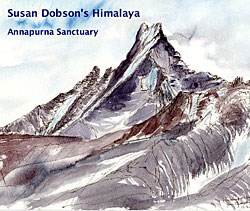Mountain Legacies

Literary and artistic responses to Britain’s mountaineering exploits through the centuries.
On the 21st May I attended an event at The Literary & Philosophical Society (Lit & Phil) in Newcastle upon Tyne. The Lit & Phil is the largest independent library outside London, housing over 150,000 books.
Titled 'Mountain Legacies' the event was organised by Dr Abbie Garrington (Newcastle University) and Dr Chris Donaldson (Lancaster University), to celebrate and discuss the literary history of mountaineering and climbing, through the sharing of research and public discussion.
There were three main speakers:
Professor Simon Bainbridge (Lancaster University) spoke on the subject 'British Romanticism and the Invention of Mountaineering'. He told us the use of the verb 'mountaineering' was first recorded in a letter written by the romantic poet Samuel Taylor Coleridge and that many of the romantic poets considered mountaineering as 'essential training' for their literary work. The physical process and danger they encountered produced a heightened awareness of the world around them.
It was also suggested that it was during the romantic period that mountaineering was first considered a sport, with Sir Walter Scott especially, popularising it as an heroic pastime. Scott's writing was subsequently quoted in Auldjo's account of his ascent of Mont Blanc.
Dr Penelope Bradshaw (University of Cumbria) gave a lecture entitled 'Living at Our Full Compass: Michael Roberts and the Poetry of Mountaineering'. Michael Roberts saw the romantic period as more the poetry of mountains not mountaineering but he tried to describe the processes of mountaineering, also seeing it as a metaphor for the political struggles of the age.
Dr Jonathan Westaway (UCLAN) spoke about ‘“A Banner with a Strange Device”: the legacy of Longfellow's poem Excelsior'. Excelsior is a brief poem written and published in 1841 by Henry Wadsworth Longfellow. The poem describes a young man passing through the Alps bearing the banner "Excelsior" (translated from Latin as "higher”, “loftier”, or “ever upward”), ignoring all warnings, climbing higher until he is found by the "faithful hound" half-buried in the snow at the Great St.Bernard Pass, "still clasping in his hands of ice that banner with the strange device, Excelsior!"
Dr Westaway said Longfellow was incredibly popular in his day but now some see his poetry as sentimental and mawkish although he argued that Excelsior had a large and lasting influence in Europe. The phrase “Excelsior!” was adopted by mountaineers in the nineteenth century, Le Club Alpin Français choosing it as the club motto at the club’s foundation in 1874.
The lecture was well attended and there was a lively period of discussion following the conclusion.
The lectures were organised to coincide with the opening of an exhibition of artwork, Mountains in Mind, by Susan Dobson (see image at the top of the page). A professional painter and printmaker, Susan Dobson creates her drawings and watercolours in the field; often remote and challenging locations in the mountains. There were a great number of inspiring pictures, utilising several different media, from all over the world. The Lake District, Isle of Skye, The Alps and Khumbu Himalaya all represented, among others.
'Mountains in Mind' will remain on display until 11th June. Susan Dobson will be giving a talk 'Mountains in Mind: Inspirations and Meditations' explaining her research, expeditions and creative processes. The event takes place at the Lit & Phil on Wednesday 4th June at 1800hrs and is free to attend.
See some
examples of Susan's work
The final star of the afternoon was the Lit & Phil itself and its remarkable collection of mountaineering books. Many fine examples were laid out on the tables for us to peruse; Whymper, Shipton, Tilman and Younghusband all represented. There was also a remarkable volume of panoramas, by Fillipo de Fillipi, taken on HRH Prince Luigi Amadeo of Savoy's 1909 expedition to the Karakorum.
Those interested in accessing the Lit & Phil's collection can
explore their website.
Thank you to the organisers, speakers, and artist for a most enjoyable, and thought provoking, afternoon. It no longer seems good enough to say I climb it “because it's there”.
This report was written by Mountain Training Association member Matthew D N Atkinson.